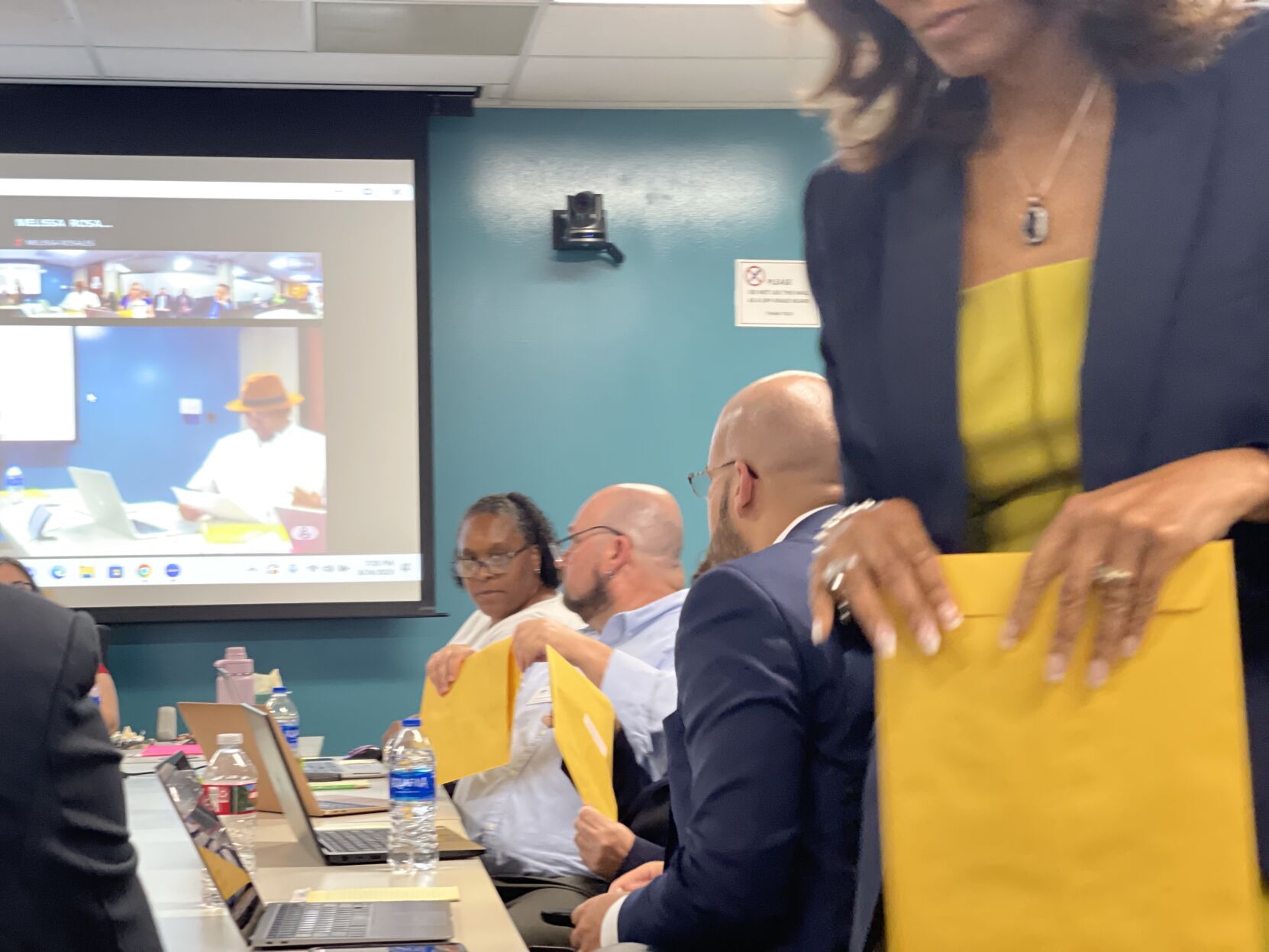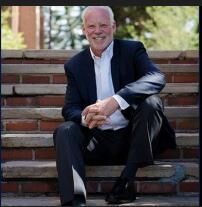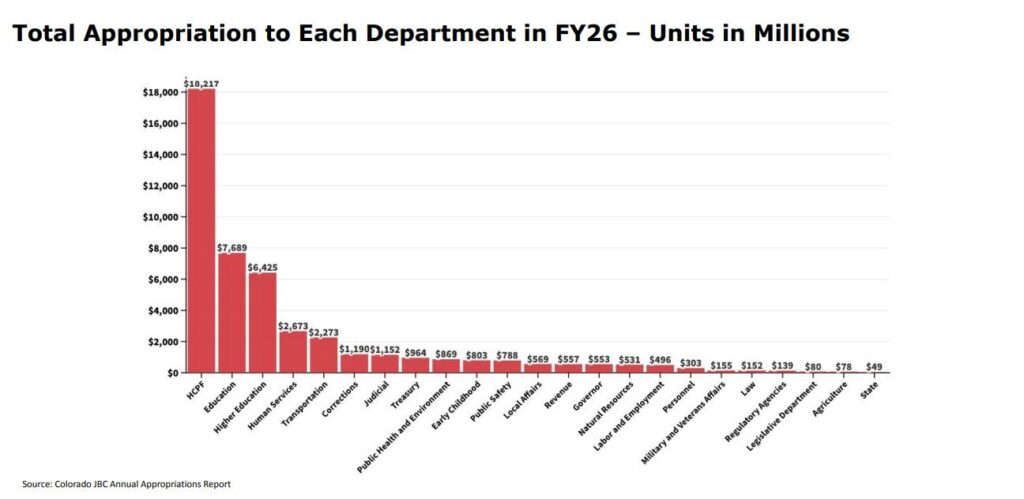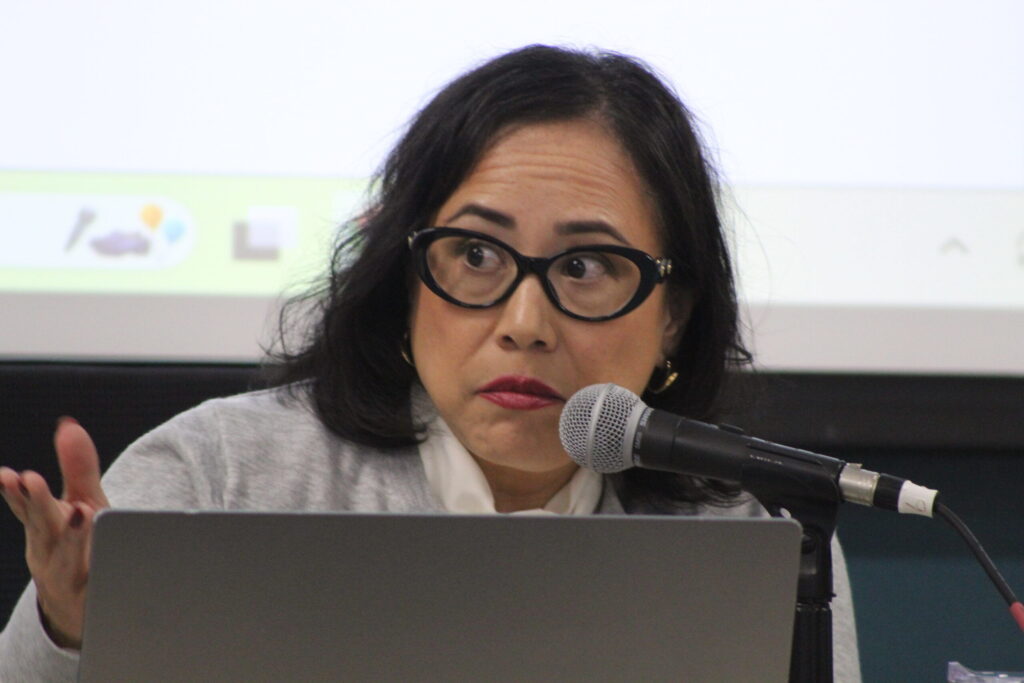Anderson doubles down on racism comments on McAuliffe principal’s use of seclusion rooms

In a press conference on Aug. 31, Denver Public Schools Board of Education Vice President, Auon’tai M. Anderson, addresses the ongoing investigation into McAuliffe International School that saw the firing of principal Kurt Dennis.
Tom Hellauer
tom.hellauer@denvergazette.comTomHellauer
tom.hellauer@denvergazette.com
https://secure.gravatar.com/avatar/a3dc80c0a9d47d671f1f3da872cc0a06?s=100&d=mm&r=g
Denver Public Schools Board of Education Vice President Auon’tai Anderson doubled down Thursday on assertions that race alone is not the sole reason for the use of seclusion rooms at McAuliffe International Middle School.
A district investigation into the use of a locked de-escalation room found that Principal Kurt Dennis, who was fired by the district, did not engage in “discrimination, harassment, or retaliation” when putting McAuliffe International students into a de-escalation room.
“I’m willing to put everything on the line for our children,” Anderson said at a press conference he called for at Brother Jeff’s Cultural Center, adding he understands his comments could invite a political backlash as he seeks a legislative office.
Generally speaking, discrimination occurs when an individual acts because of the actual or perceived race or national origin of another person.
Others in the district are also being investigated on the use of seclusion rooms, he said.
Anderson, who decided not to seek reelection, is running for the state House.
Over the past several weeks, board members zeroed in on the issue of race. At a press conference earlier this month, Xóchitl Gaytán, the board’s president, and Scott Esserman, a director, inferred the students allegedly held at the room might have been Black or Latino. They also blamed “systemic racism” and discussed the necessity for the district to educate all students.
But, on Thursday, Anderson slightly modified that emphasis. He insisted no one in the district had said race was the sole motivation for the de-escalation room at McAuliffe.
“The legal burden of proof for racial discrimination is high,” Anderson said.
This is the first time that Anderson specifically raised the need to meet a “legal burden” for proving racial discrimination at McAuliffe.
Other board members had joined Anderson when the district first revealed the investigation into McAuliffe’s seclusion room. No other board member joined Anderson at his press conference on Thursday.
The three-page internal report of the investigation said Dennis did not engage in the “legal definitions of unlawful discrimination, harassment or retaliation” when placing students in the de-escalation room without supervision and prevented them from leaving.
Despite the findings, officials insisted Dennis failed to meet district expectations.
An internal, district survey of Dennis that measured “employee engagement and satisfaction” contradicts this, finding the former principal enjoyed wide support at McAuliffe.
Dennis was also popular among many parents, and his firing generated public outrage and a reinstatement petition with more than 6,200 signatures.
The stated reasons for Dennis’ firing in July was for other reasons.
His attorney, David Lane, has said Dennis’ firing arose from an interview with The Denver Gazette’s media partner, 9News interview, in which the former principal said the district pressured him to accommodate potentially dangerous students, including one accused of attempted murder.
The board of education affirmed the termination last week.
The district’s investigation concluded there was evidence the seclusion room at McAuliffe violated policy, contravening claims by board members who said students were treated differently based on their race.
Under public pressure for Dennis’ firing, the board has now focused on new allegations the former principal locked McAuliffe students inside a de-escalation room, which board members – including Anderson – “incarceration room.”
The district uses de-escalation rooms as a kind of time out for agitated students to calm down. Students, however, are not supposed to be placed in the room by themselves and the door should not be closed or locked under the district’s policy.
Anderson said Thursday that the district has roughly 32 de-escalation rooms at various elementary, middle and high campuses. None of those he has visited was as devoid of decor and sensory items to aid distraught students as McAuliffe, he said.
It is unclear what oversight is provided for the use of de-escalation rooms other than the mandatory notice state law requires for parents and guardians.
Over the past decade under Dennis’ leadership, AdvocacyDenver has lodged more complaints against McAuliffe International than any other school in the district.
In addition to the district, the Denver Police Department, the Colorado Department of Education and NAACP Denver are investigating the use of seclusion rooms at McAuliffe.

tom.hellauer@denvergazette.com

tom.hellauer@denvergazette.com

tom.hellauer@denvergazette.com














